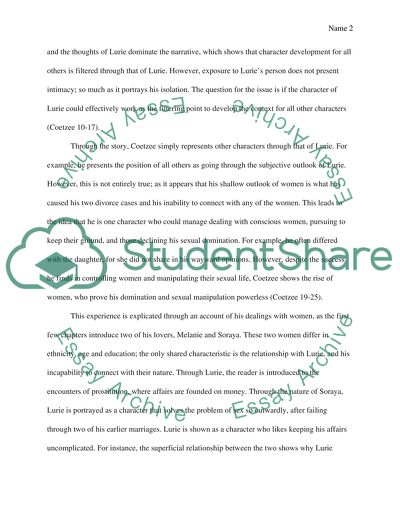Cite this document
(“Analysis of Coetzee's Disgrace Book Report/Review”, n.d.)
Analysis of Coetzee's Disgrace Book Report/Review. Retrieved from https://studentshare.org/literature/1605428-argument-essay-coetzees-disgrace
Analysis of Coetzee's Disgrace Book Report/Review. Retrieved from https://studentshare.org/literature/1605428-argument-essay-coetzees-disgrace
(Analysis of Coetzee'S Disgrace Book Report/Review)
Analysis of Coetzee'S Disgrace Book Report/Review. https://studentshare.org/literature/1605428-argument-essay-coetzees-disgrace.
Analysis of Coetzee'S Disgrace Book Report/Review. https://studentshare.org/literature/1605428-argument-essay-coetzees-disgrace.
“Analysis of Coetzee'S Disgrace Book Report/Review”, n.d. https://studentshare.org/literature/1605428-argument-essay-coetzees-disgrace.


